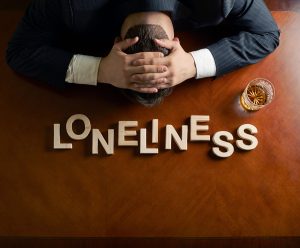Is Your Smartphone Ruining Your Relationship?
 Smartphone dependency is on the rise. According to Dr. James A. Roberts, “the typical American checks his or her smartphone once every six-and-a-half minutes, or roughly 150 times each day.” When one of these frequent phone checks interrupts a conversation or quality time with a romantic partner, it can have serious consequences on the relationship.
Smartphone dependency is on the rise. According to Dr. James A. Roberts, “the typical American checks his or her smartphone once every six-and-a-half minutes, or roughly 150 times each day.” When one of these frequent phone checks interrupts a conversation or quality time with a romantic partner, it can have serious consequences on the relationship.
The term “phubbing” (derived from “phone-snubbing”) describes those moments we are all too familiar with, when one partner gets distracted by their phone and the other partner feels rejected. In fact, phubbing has become so common that it is now one of the biggest sources of conflicts in romantic relationships—right up there with arguments about money, kids, and sex!
A recent study published in the journal Psychology of Popular Media Culture examined how smartphone use and smartphone dependency affect the health of relationships amongst college-aged adults. Young couples were asked about their own smartphone use and dependency as well as the perceived smartphone use and dependency of their partners. The study showed a significant link between higher levels of dependency on smartphones and higher levels of relationship uncertainty. Additionally, participants who perceived their partners as being highly dependent on their smartphone were significantly less satisfied in their relationships.
While these results may not surprise anyone who has ever sat across the table from a loved one and wished they would look up and engage in a conversation rather than responding to whatever text message or notification just diverted their attention, this study offered an interesting twist. The results suggested “that smartphone use, in general, does not affect relational health.” Rather it is the “psychological reliance on these devices, and one’s need to constantly be connected with his or her smartphone, that potentially affects relationships and not actual use.”
This dependence on smartphones makes the devices so alluring that, as romantic partners, we simply can’t compete. (I’ve written previously about why smartphones are SO addictive.) According to the Chicago Tribune, Brandon McDaniel, who studied phones and relationships at Illinois State University, “found that when technology devices frequently interrupted partners, couples had more conflict over technology use, lower relationship satisfaction, more depressive symptoms and lower life satisfaction.”
Yet, this is an incredibly common problem. A study on “Technoference,” the interference of technology in relationships, found that 70 percent of participants reported that smartphone interruptions negatively impacted interactions with their romantic partners. Authors of the study explain that by allowing technology to interrupt time spent with romantic partners “individuals may be sending implicit messages about what they value most, leading to conflict and negative outcomes in personal life and relationships.”
The bottom line is: nobody likes to be phubbed. It makes us feel as though our partners don’t take us seriously and/or don’t find us interesting. It leads to more insecurity in ourselves and more uncertainty about our relationships. So, if your goal is to have a happy, healthy relationship, it’s best to consistently prioritize your partner over your smartphone. The more distance you put between yourself and your phone, the more closeness you can achieve in your relationship.









Hello my name is Alex and I’m a 3rd grade student at UCLA. I was researching the war on texting in society and came across this sight and am not sure about the sources. Can someone get back to me to make sure this is credible information that’s worth my time?
So true. God I wish my boyfriend would get with the program already!!
Girl, drop him. He’s dead weight.
nuget biscut nuget an a biscut
This is why 2d is better, get on my level.
Nah cuz this isn’t it. Pretty sure half of it is fake news. I mean Dr. James A. Robers isn’t even a medical doctor, he’s in the marketing field. What should he know about mental health? And on that topic, all we know about this lady is that she has a degree in creative writing, what should /she/ know about mental health. Check your sources, people.